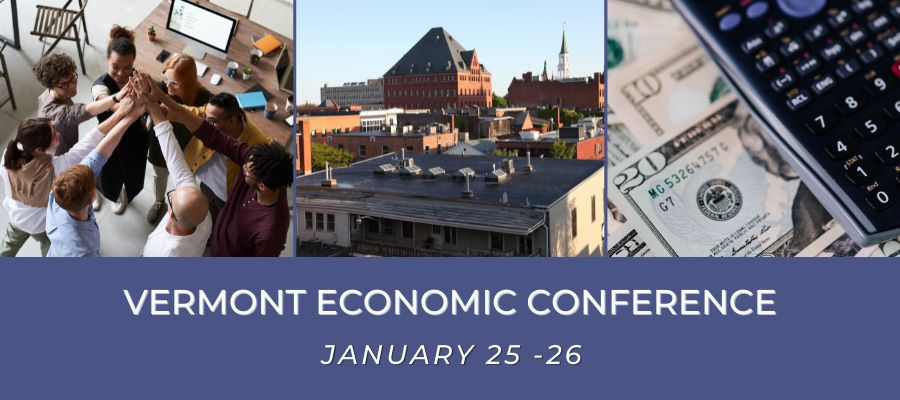By Betsy Bishop, Vermont Chamber of Commerce
The last two years changed our communities and how we do business. During the Covid-19 pandemic, Vermont businesses rallied, innovated, and pivoted. Still, not every business was able to stay open. And now, as we work to recover from the health crisis and economic downturn, a severe labor shortage spans across every industry.
There is a long road ahead, with business operations and consumer expectations permanently changed. The health of our state’s economy and workforce depends on the evolution of our businesses and continued support from government leaders. In 2022, the Vermont Chamber will focus on the most pressing issue that our businesses are facing: growing and retaining Vermont’s workforce to address our labor shortage.
In every policy discussion, we plan to evaluate the impact on Vermont’s economic and workforce growth. We will continue advocating for continued or increased support for:
- Funding training programs and RETAIN
Training programs like the Vermont Training Program and Workforce Innovation Opportunities Act give Vermonters the ability to upskill and enter high-need industries like manufacturing, information technology, and health care. Vermont is also participating in the U.S. Department of Labor’s RETAIN program to help workers with injuries and illnesses stay at or return to work.
- Supporting career and technical education
We support the Vermont Futures Project recommendation to strengthen the Career Technical Education system so that more high school students can pursue post-graduation career opportunities, including through alternative funding and governance models and integrated academic offerings focused on expanding the workforce supply.
- Funding relocation grants and programs
The Vermont Chamber has long supported funding relocation grants, and this program is even more important now as the labor shortage puts pressure on an inadequate amount of workers. The Vermont Futures Project identified that Vermont needed 10,000 more workers in the labor force before the pandemic. That number has more than doubled. The Vermont Department of Financial Regulation recently released a report quantifying the effectiveness of the incentive programs, which shows that for every dollar spent by the state on this program in 2019, there was $66.26 in economic activity generated. The Stay-to-Stay program has also proven to be an important component of the recruitment and retention effort as the report further illustrates how these programs are a key component of the state’s strategy to attract and retain new workers.
- Removing tax on military retirement pay
In 2022, we will continue pushing for a military retirement pay tax exemption. Better incentivizing military retirees to move to Vermont would increase the diversity of our communities while also strengthening our workforce.
- Increasing funding for refugee resettlement
For years, the Vermont Chamber has supported additional funding for refugee resettlement in Vermont. Welcoming refugees to our state is part of the Vermonter spirit, helps our economy, and grows our workforce when we need it most.
- Encouraging second chance hiring
Employers have worked to reduce barriers to workforce participation, specifically in second chance hiring for Vermonters entering the workforce after struggling with addiction or leaving the corrections system. We need all Vermonters to participate in the workforce, and employers need support to understand the needs of these workers and support them as they return to the workforce.
- Supporting child care investments
A report by the U.S. Chamber showed that, of states examined, losses averaged $1 billion annually in economic activity due to breakdowns in child care. Even before the pandemic, three out of five of Vermont’s youngest children didn’t have access to child care they needed. We will continue supporting investments in child care to make it easier for parents to work and to attract new families to Vermont. Available and affordable child care is not just a business issue – it impacts all Vermonters, and the Chamber will work with partners across sectors to find a sustainable solution.
Aging housing stock, tight supply, and rising prices near employment centers have forced people to make difficult choices about where to live and work. We need to increase the overall amount of housing units in Vermont while also focusing on creating housing options for low- and middle-income Vermonters to grow and retain our workforce.
- Fostering diversity, equity, and inclusion
The Vermont Chamber is also focused on making Vermont an equitable and inclusive state, where all feel welcome. Doing so is necessary for our state and the only way to attract new residents and workers.
And Vermont businesses are doing their part. Between the summer of 2019 and the summer of 2021, wages increased by 13 percent, employers got creative to support their staff and keep them healthy and connected, and businesses adapted to improve employee safety with PPE and altered work environments.
This pandemic is a marathon, not a sprint. Our political leaders helped businesses across the state persevere, but the challenges continue. Political attention to Vermont business issues and aid for them must also continue.
We will advocate and use our strengths to position Vermont businesses for success. In 2022, supporting our state’s economy and growing our workforce is paramount.

Betsy Bishop is the President of the Vermont Chamber of Commerce, whose mission is focused on creating an economic climate conducive to business growth while enhancing Vermont’s quality of life. She lives in East Montpelier.









